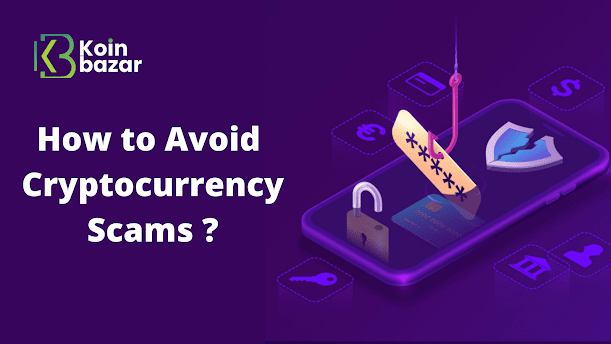How to avoid cryptocurrency scams ?
Introduction:
With the emergence of cryptocurrencies, hackers have been able to use blockchain flaws to defraud millions of people all over the world. According to industry experts, if the online crypto industry continues to draw new users at an unprecedented rate, the number of hacking incidents will rise in the following days and weeks. Between January and July of this year, large bitcoin thefts, hacks, and fraud are estimated to have cost more than $650 million. Many more will be reported as a result of a variety of factors, including a lack of technological understanding.
What is cryptocurrency scam ?
A cryptocurrency scam is a sort of investment fraud in which criminals take money from customers who are intending to participate in the new digital currency world.
Because most crypto-assets and related services aren't regulated by the Financial Conduct Authority (FCA) for anything other than money laundering, they aren't covered by the Financial Services Compensation Scheme.
Different types of cryptocurrency scams
1. Celebrity endorsement cryptocurrency scams:
To market their bitcoin investments, some scammers make advertisements utilizing photographs or videos of celebrities. They use social media to reach out people and claim that high-profile public personalities support their investment scheme. The advertisements frequently direct viewers to professional-looking websites where they attempt to persuade them to invest in non-existent investments using bitcoin or regular cash. Some con artists construct phoney accounts that they control with software to make it appear as if an investor is profiting, incentivizing them to contribute more.
The investor's account is terminated once they have upped their investment, and the scammers disappear with their money. Other con artists vanish as soon as they receive the initial payment, leaving investors with nothing.
2. Phishing:
Phishing is an email scam in which you receive a message that appears to be from a Well Known trusted Brand sources.The notice will usually prompt you to click a link and log into your account by informing you that your account has been locked or that a substantial amount of money has been transferred.In actuality, the email's link leads to a bogus website that captures your personal information. Another variation of this scam involves an email attachment that is actually a computer virus, such as a discount or a form you must fill out.
3. Vishing:
The term vishing is a mix of the words voice and phishing. Vishing is a form of Phishing Technique that occurs over telephone conversation. A fraudster will persuade unsuspecting customers to provide valuable information such as bank account numbers, credit or debit card numbers, and OTP.
4. Investment scams:
Typically, this is a phone-based scam. You may also be targeted in other ways, such as through email or visitors to your home. The idea remains the same, regardless of how investment schemes differ. You are urged to give money to invest in a company or product that does not yet exist.
5. Smishing scam:
Scams that happened via Text messages called Smishing scam. Scammers will approach you under the guise of your bank, claiming that you need to update your personal information or that there is an issue. In the text, a link, such as in a phishing scam or a phone number to call could be included. When you call the number, the fraudsters will attempt to obtain your personal information.
What Makes Koinbazar a safest cryptocurrency exchange?
cryptocurrencies are more valuable assets when comparing to the other assets. Koinbazar a global cryptocurrency exchange platform provides the smoother trading experience for Both New and Professional Traders. When come to the security, Koinbazar offers cold wallet storage helps you to prevent from a online hacking with the security options like 2FA, Fingerprint Authentication, Email Authentication and OTP Authentication.




Comments
Post a Comment